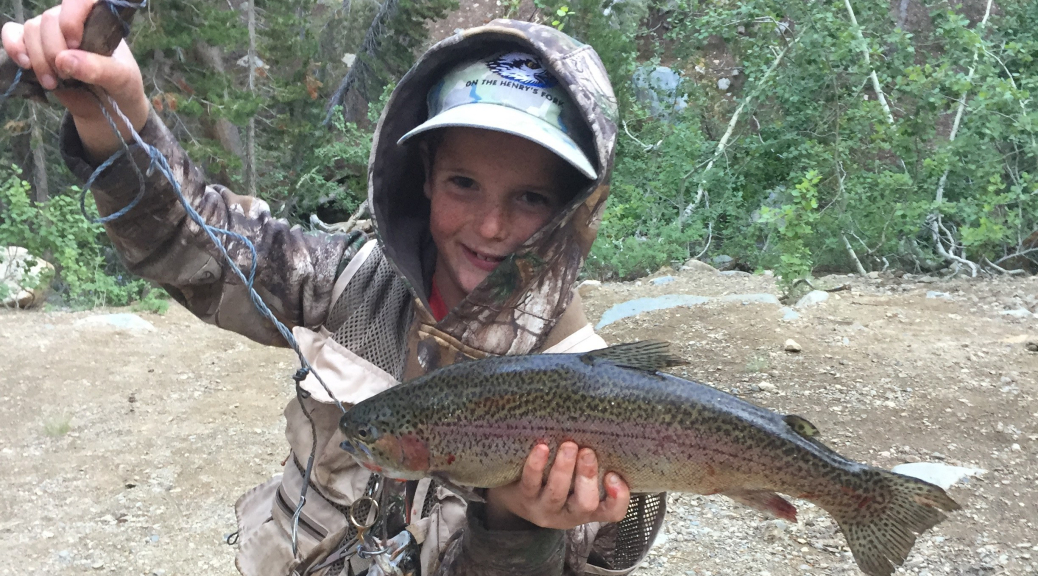Recycling Christmas Trees for Fish Habitat

by CDFW
12-21-2018
Website
Question: I heard somewhere that Christmas trees can be recycled to create habitat for wild animals. I don’t remember the details or have any idea how to find out if this is available in my community. I hate to put my tree out to the curb after the holidays, if I could actually donate it to help the environment in some way. (Sonja)
Answer: What a great question! We appreciate your altruistic spirit. Yes, fisheries biologists can and do recycle Christmas trees to build habitat for juvenile fish. Last summer alone, the California Department of Fish and Wildlife (CDFW) Fish Habitat Improvement Shop in Yreka used about 200 Christmas trees and small junipers that they’d collected right after the holidays to create 22 fish habitat structures that were placed into Green Springs Reservoir in Modoc County.
Donated trees – which need to be free of tinsel, ornaments and other decorations – are tied together, weighed down with cables and placed into the water. Once submerged, the tree trunks and branches become a nursery for small warmwater fish (mainly bass and crappie).
Interestingly, the small fish attract larger, catchable fish that congregate in the area, looking for an easy meal – so the installation of the habitat structures also ultimately leads to improved fishing opportunities for anglers, too!
This winter there will be several efforts to collect trees for this purpose. All of these are in the north state (Siskiyou, Modoc and Placer counties). Drop-off locations will be located near CDFW’s Alturas and Yreka offices, as well as a yet-to-be-determined location in the town of Chester.
For more information about recycling Christmas trees for fish habitat, please see our Science Spotlight article.
Can I Keep a Jumping Fish?
Question: If a salmon jumps out of a river, do you need a license to collect it? (Jon)
Answer: It would not be legal to retain a salmon under these circumstances. There are two issues here – the method of take, and possession.
Fishing and hunting regulations define specific, allowable “methods of take.” The salmon (or any fish, for that matter) would need to be taken by a legal method such as hook and line, in legal waters, in order for you to lawfully possess it. You can’t collect and keep a fish you find, as you did not take it by permissible means.
Also, if you are over the age of 15, you would need a current California fishing license to be in possession of any wild fish (unless you are pier fishing, it’s a free fishing day or the fish was legally taken by a licensed angler and then gifted to you).
How Can I Prove that a Fish is a Gift?
Question: My sister and I were at the lake recently, and a friendly angler offered us a freshly caught fish to take home. We had no way of keeping it cold, so we turned down the nice offer. Later, I wondered if it would have even been legal for us to take it, since we don’t have fishing licenses. What would have happened if we’d taken the fish, and been stopped by a warden on the way home? (Shelley)
Answer: It’s legal for a licensed angler to “gift” you fish. But you’re correct that a wildlife officer might have questioned where the fish came from if you couldn’t produce a fishing license. To avoid a misunderstanding in such circumstances, you need to have the angler write down his or her name, contact information and fishing license number. This way an officer could easily contact the angler to verify your story and ensure you’re in legal possession of the fish.
More Reports

12-20-2018
The winter holidays are a popular time for families and individuals to enjoy recreational trout fishing, and the California Department...... Read More

12-14-2018
The California Department of Fish and Wildlife (CDFW) has released a Statewide Elk Conservation and Management Plan. The plan has undergone extensive...... Read More
